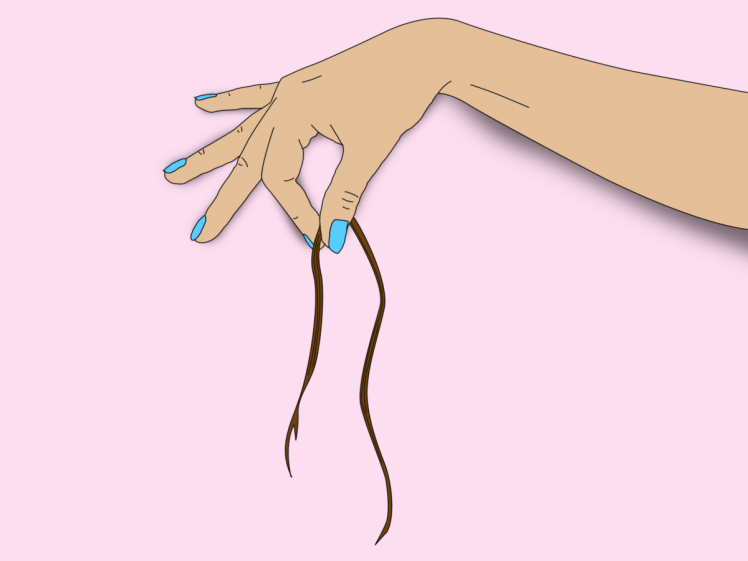
For a lot of women, hair isn’t just there to keep your head warm. It’s a comfort blanket, a sign of your personal style and something which you pour time and money in to maintaining. So for the 70% of women who experience hair loss over their life time, losing it is a distressing experience. Is there anything that you can do to prevent your hair from falling out, or to slow down the loss when it starts happening? Thin hair is often thought of as a men’s hair concern, but recent stats show it’s as much of a concern for women Female hair loss can be temporary. It’s common in women who have recently had babies, due to hormonal changes following birth. But it can also be permenat. Unlike male baldness, which tends to start either with a receeding hairline or a pate, female hair loss generally starts around the hairline and parting. Dr Shahmalak is a leading hair transplant specialist and he explains. He provided Metro.co.uk with an insight into female hair loss. ‘I think that concerns around female hair loss are rising as more and more women choose to talk about their experience’ he said. ‘There is still a stigma attached to female hair loss, but instead of being something shameful or embarrassing, it’s important to remember that hair loss is a natural process and a result of aging.’ He goes on to explain: ‘Up to 80% of hair loss is due to genetic factors, which are inherited from your parents. Your likelihood of experiencing hair loss can increase however, due to a number of other factors, such as: Illness (eg. alopecia, anaemia, thyroid issues), smoking, using harsh chemicals on hair, such as when bleaching or perming, regularly tying hair back into tight styles, stres or poor diet If you are losing your hair – for whatever reason – what should you do? (Picture: Ella Byworth for Metro.co.uk) ‘Supplements may help to boost hair health’ says Dr Shahmalak , ‘but generally only if hair loss is due to a deficiency. For example, hair loss caused by anaemia may be reduced by taking iron supplements. I recommend Watermans GrowPRO hair vitamins which would be great to boost hair health and produce, thick healthy hair.’ What about products? Could your dry shampoo habit be what’s causing your hair loss? Dr Shahmalak thinks not, saying: ‘As hair loss is primarily due to hormonal and health changes, there are no particular products I would recommend avoiding. However, there are steps you can take to reduce the chance of hair loss such as keeping yourself active and healthy. ‘Exercise not only helps to improve your overall health and cardiovascular strength, but increased blood flow to the scalp delivers oxygen and nutrients to hair follicles, which can help to keep your scalp and hair healthy. Stopping smoking, avoiding harsh bleaching and perming of hair and not wearing hair pulled back into tight styles can also help to reduce the chance of hair loss. In terms of products, Dr Shahmalak recommends GROWMe shampoo and conditioner from Watermans. There are a number of medications that can be taken to prevent further hair loss and encourage hair growth, such as Finasterade and Minoxidil. These medications stimulate hair follicles to create new hair and protect the follicles from the effects of growth-reducing hormones. These medications have to be prescribed by a doctor though. And if none of that works? That’s when people consider surgery. Dr Shahmalak says: ‘FUT (Follicular Unit Transplant) hair transplants are a great permanent option for female hair loss. This involves individual hair follicles being removed from less visible areas of the scalp and transplanted into thinning or balding areas. The transplanted hair can be placed in specific areas of the scalp where hair loss is particularly noticeable, or can be placed across the scalp to help hair look thicker in general.’
Source:-metro.c
